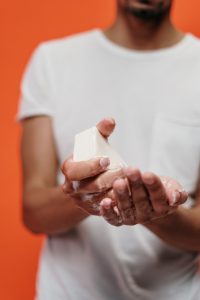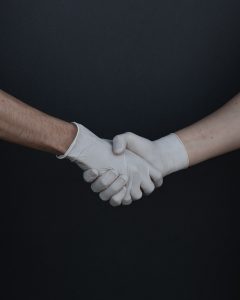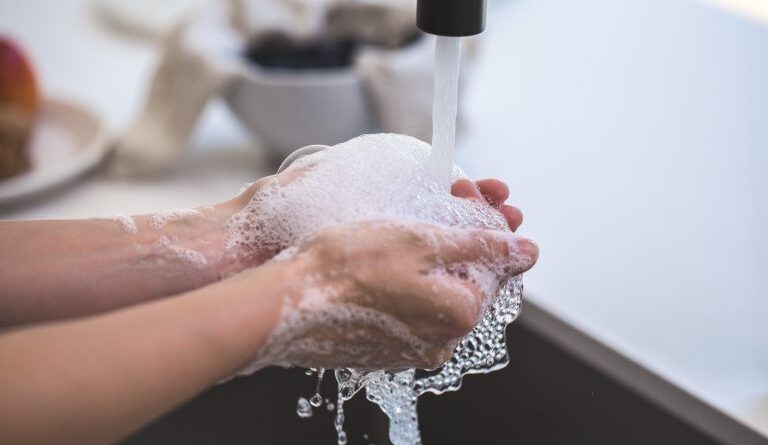Wash Your Hands!
As important as social distancing, keeping your hands clean is vital to prevent the spread of germs, including the virus, COVID-19. In fact, hand washing and social distancing are among the few measures both the CDC and the WHO recommend for prevention of contracting COVID-19. Click here for a link to the WHO’s recommended handwashing technique.
How do we effectively wash?
Essentially, the most important aspects of hand washing are soap and water, friction, duration and drying. Soap and water are actually very effective in dissolving viruses, because soap acts as a solvent to destroy their fat-based capsule. We do not recommend antibacterial soap for routine use and it would not provide extra protection during this pandemic because COVID-19 is a virus and not a bacterium.

Hand washing recommendations are to use soap and water and to provide adequate friction on all surfaces of the hands. Wash the palms and backs of your hands, around your knuckles and nails and in the creases between your fingers. Duration is the next important matter and honestly, if you are washing all the parts of your hands with adequate friction, it takes a little while. We don’t need to wash for 5 minutes like surgeons do before a procedure, but devote at least 30 seconds to a thorough washing. This is just a little longer than the time it takes to sing Happy Birthday twice or one and a half rounds of Henry the 8th, I am. We’d love to hear your favorite tune that takes around 30 seconds!
After washing, turn off the faucet with a towel or your wrist or elbow rather than your now clean hands. Dry hands on a clean towel.
Hand sanitizer and disinfecting wipes
Alcohol based hand sanitizer can be used if soap and water are unavailable. Use only when necessary and if you hands are visibly dirty, wash with soap and water as soon as possible. Due to the shortage of hand sanitizer, the FDA has asked compounding pharmacies to compound a standardized hand sanitizer formula – we know that Community Compounding on Jean Road in Lake Oswego has hand sanitizer and it is available without a prescription. Check with your favorite compounding pharmacy for pricing and availability. Disinfecting wipes and sprays are not designed for use on human skin and should not be used for cleaning hands.
How often is “frequently?”
So we’re all being encouraged to wash our hands frequently, but what does that really mean? You should wash your hands:
- After you sneeze, cough or blow your nose
- Before, during and after preparing food
- We recommend cleaning your hands before starting, then cleaning any food items which may be contaminated. Open any packaging, empty contents into a clean container and discard packing, then wash again. Proceed to prepare food. This video has some useful tips for keeping your kitchen space clean.
- Before eating
- After using the toilet, helping a child use the toilet or changing a diaper
- After handling garbage
- After touching a pet or animal, their feed or their waste
- After touching high-touch surfaces in public places
- public doorknobs, light switches, railings, subway poles, etc.
- You do not need to wash your hands every time you touch a doorknob in your own home.
- After caring for sick or elderly family or friends
- This includes but is not limited to general care, wound care, after removal of gloves, toilet assistance and persons sick with digestive complaints or suspected COVID-19.
Because all of this hand washing can be drying, we do recommend the use of hand cream or lotion to help keep skin from drying out too much and prevent cracking.
What about gloves?

We do not at this time recommend the routine use of gloves, certainly not in your own home. However, it may be reasonable to use gloves on occasion when in public at this time. Recommendations have included using gloves while pumping gas or grocery shopping. Keep in mind, as discussed in this video put out by one of my favorite animal rescue organizations, that gloves are only as effective as the way we use them. If you use gloves, do not touch your face with your gloved hands. COVID-19 is not spread through skin contact, so if you touch items in public with your bare hands and wash them before touching your face, this may be as effective as using gloves.

